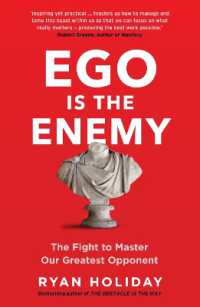Measure What Matters: How Google, Bono, and the Gates Foundation Rock the World with OKRs
John Doerr’s Measure What Matters is a seminal work that brings the powerful concept of Objectives and Key Results (OKRs) to a wider audience. As a venture capitalist who introduced OKRs to Google in its early days, Doerr provides an insider’s perspective on how this goal-setting methodology has driven the success of some of the world’s most innovative organizations.
The Power of OKRs
OKRs are a simple yet effective framework for defining and tracking objectives and their outcomes. An Objective is what is to be achieved—a significant, concrete, action-oriented, and inspirational goal. Key Results are how to achieve the objective—specific, measurable, and verifiable milestones that track progress toward the objective.
Doerr highlights four “superpowers” of OKRs:
- Focus and Commit to Priorities: OKRs force individuals and teams to identify and commit to a few, high-impact objectives, eliminating distractions.
- Align and Connect for Teamwork: By making objectives and key results transparent across an organization, OKRs ensure everyone is working towards common goals, fostering collaboration and preventing silos.
- Track for Accountability: Regular tracking of key results provides clear visibility into progress, enabling timely adjustments and promoting a culture of accountability.
- Stretch for Amazing: OKRs encourage ambitious goal-setting, pushing individuals and teams beyond their comfort zones to achieve extraordinary results.
Case Studies and Applications
The book is rich with case studies from diverse organizations, including Google, Intel, Intuit, and the Gates Foundation, demonstrating how OKRs have been successfully implemented in various contexts. Doerr also shares insights from interviews with leaders like Larry Page, Sundar Pichai, and Bono, illustrating the real-world impact of OKRs on innovation, growth, and social change.
Implementing OKRs
Doerr provides practical guidance on how to implement OKRs, emphasizing the importance of:
- Top-down and Bottom-up Approach: Objectives can be set at the organizational, team, and individual levels, with alignment flowing both ways.
- Cadence and Review: Regular check-ins and quarterly reviews are crucial for tracking progress, identifying roadblocks, and refining OKRs.
- Transparency: Making OKRs public within the organization fosters accountability and alignment.
- Separating OKRs from Compensation: To encourage ambitious goal-setting, OKRs should not be directly tied to performance reviews or bonuses.
Conclusion
Measure What Matters is more than just a book about goal-setting; it’s a manifesto for achieving greatness through disciplined execution and transparent communication. By adopting the OKR framework, organizations and individuals can unlock their full potential, drive meaningful progress, and truly “rock the world.”




